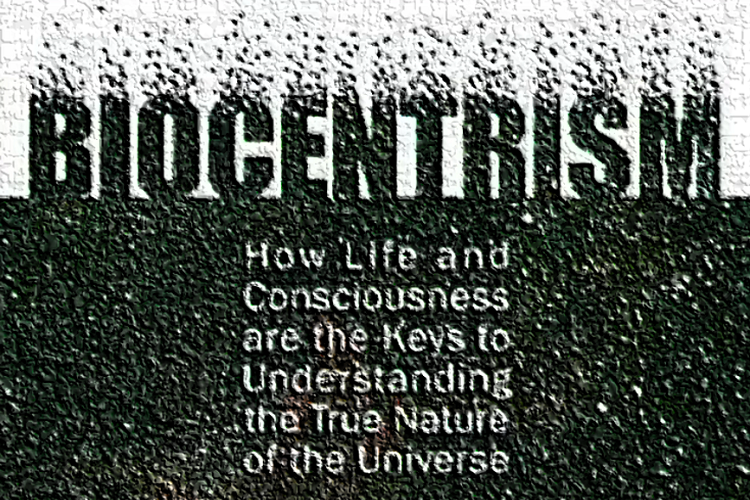Some people believe that biocentrism is a valid scientific theory while others argue that it has been debunked by modern science. So what’s the truth? Is biocentrism really debunked or not? Let’s take a look at both sides of the debate in order to find out if biocentrism really can be considered debunked or not.
Biocentrism is a philosophical paradigm introduced by physicist Robert Lanza. It positions living organisms as the focal point of the Universe, offering a distinctive perspective on cosmic understanding. Challenging traditional anthropocentric beliefs prioritizing humans, consciousness, and biology are foundational to the Universe.

Despite gaining prominence, this revolutionary theory has yet to escape scrutiny. Skepticism and criticism have emerged, questioning its empirical basis. Critics challenge the leap from acknowledging consciousness’s role to asserting that the Universe revolves around living entities.
This anxiety between acclaim and skepticism highlights the continued discourse surrounding Biocentrism. It is a subject of discussion within both scientific and philosophical communities. Here, know the intricacies of Biocentrism, examining both its merits and the challenges it faces, which are listed below:
What is Biocentrism?
In 2007, physicist Robert Lanza introduced Biocentrism. It is a paradigm asserting that consciousness is the motivating factor behind the Universe, reducing everything else to mere byproducts.
According to this theory, the Universe isn’t a concrete entity but a mental construct molded by human perceptions. It proposes a shift from physics to biology, as the primary science of the Universe is the foundational element of existence.
In essence, Biocentrism challenges traditional views by emphasizing the role of living entities in shaping the nature of reality. It suggests a profound interconnection between biology and the cosmos.
Biocentrism’s Key Tenets:
You must comprehend the fundamentals of Biocentrism before they discuss the arguments in favor of and against it. According to Dr. Robert Lanza, biology is the primary force behind the cosmos. To learn more about the main ideas of Biocentrism, continue reading the following section:
- Biocentrism asserts a fundamental principle: life serves as the Universe’s genesis. In straightforward terms, the concept posits that the Universe comes into being through various biological processes.
- Furthermore, this ideology puts forth the idea of multiple universes, indicating the potential for events to unfold across diverse parallel realities.
- According to Biocentrism, consciousness extends beyond the confines of the physical body. It implies that consciousness can autonomously depart the body and persist beyond death.
Arguments in Favor of Biocentrism
Addressing the Fine-Tuning Problem
Biocentrism asserts the specific constants and conditions vital for life are not random occurrences. They are intentionally integrated into the very essence of the Universe. Advocates of Biocentrism contend that the intricate fine-tuning necessary for life’s existence is not a lucky outcome of chance.
Instead, they propose a profound perspective that the Universe is inherently geared towards supporting living entities. This challenges the conventional belief that the delicate balance essential for life is luck.
Instead, it suggests a purposeful design that intricately accommodates and perpetuates life. It also fosters a profound reconsideration of the Universe’s underlying order.
The Observer Effect
Biocentrism places a significant emphasis on the impact of consciousness on our perception of reality. The observer effect supports Biocentrism by highlighting how mere observation can influence particle behavior.
This alignment reinforces the biocentric assertion that consciousness plays a crucial role in shaping the nature of existence. From this perspective, life is a passive observer, but an active participant in the process has influenced the reality within the Universe.
Addressing the Mind-Body Problem
Biocentrism boldly challenges dualistic perspectives that divide the mind and body. Instead, it proposes an unbreakable link between consciousness and the physical world. Advocates of Biocentrism contend that consciousness is not a mere byproduct of the brain.
As an alternative, they assert it to be an inherent component of the Universe itself, underscoring the interconnectedness of all living entities. This perspective offers a holistic comprehension of reality.
Consciousness becomes an integral facet of the broader cosmic experience. It transcends traditional boundaries and emphasizes a unified understanding of existence.
Arguments Against Biocentrism
Lack of Empirical Evidence
A key criticism of Biocentrism revolves around the perceived absence of empirical evidence substantiating its claims. Although Biocentrism presents an intriguing theoretical framework, it needs more verifiable evidence to bolster its assertions.
Within the scientific community, the insistence on empirical support is pivotal. The fundamental ideas of Biocentrism are not directly supported by evidence. But also fosters skepticism about its validity as a comprehensive and scientifically rigorous explanation of the Universe.
Alternative Explanations
Critics increase the argument that numerous phenomena are regularly attributed to Biocentrism. It may be sufficiently explained within present scientific paradigms, eliminating the need for a radical shift in perspective.
They contend hooked up disciplines like evolutionary biology and physics. It offers alternatives explanations for the found intricacies of the Universe without necessitating the adoption of the biocentric speculation.
This essential perspective challenges Biocentrism and gives a superior model for expertise fact. It emphasizes the adequacy of conventional scientific frameworks within the complexities of the natural world.
The Role of Anthropocentrism
Biocentrism’s attention on existence and consciousness has been criticized for potentially harboring a form of anthropocentrism. It additionally has human reviews and perspectives disproportionately prioritized in decoding the Universe.
Critics assign a primary position to attention that may inadvertently increase human lifestyles. It additionally results in biased information of the cosmos.
They emphasize the significance of a broader range of views in constructing a greater impartial and complete worldview.
How Does Biocentrism Explain The Environment?
The principle of Biocentrism posits that every living being, extending past human beings, constitutes a form of ethical philosophy. This implies that each one entity maintain intrinsic significance and moral really worth in the larger scope of the Universe.
On the contrary, Biocentrism continues that every living element within a network. It holds same importance to the whole surroundings. An environment contains interconnected species, and its collective importance is paramount.
Biocentrism are awesome principles, and highlighting the environment’s importance. Biocentrism leans in the direction of individualism, at the same time as Biocentrism champions the importance of the complete ecosystem or community.
Final thoughts
Is biocentrism debunked? The answer isn’t so clear-cut as there’s still much debate surrounding this issue in scientific circles. While many scientists dispute its validity, others believe it could hold valuable insights into our understanding of reality if further research can be conducted on it in the future.
As mentioned above, the quest for understanding the essence of the cosmos gives rise to hypotheses like Biocentrism. It upends the status quo and broadens our collective imagination. With lingering doubts, the controversy of biocentrism continues to show how science is constantly changing.
As long as they continue to solve the mysteries of life, it is hard to say whether Biocentrism will withstand empirical criticism. It continues to be a thought-provoking philosophical posture at the intersection of science and consciousness.



